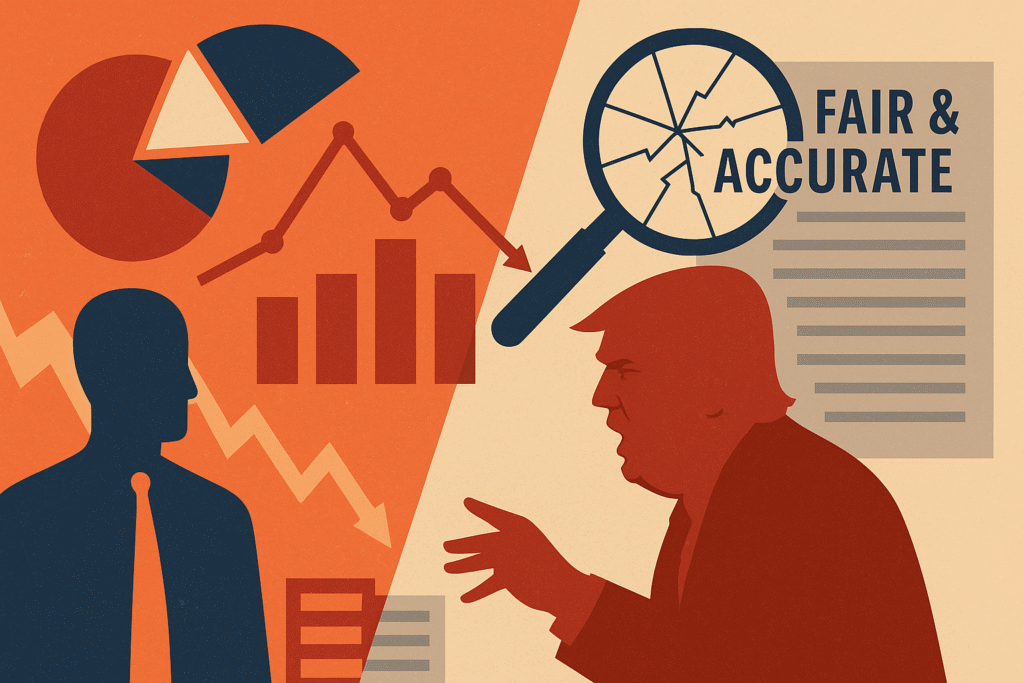In a move drawing sharp criticism from economists and political observers, U.S. President Donald Trump has dismissed Bureau of Labor Statistics (BLS) Commissioner Erika McEntarfer following the release of disappointing job figures for July. The BLS reported sluggish non-farm payroll growth and revised job creation estimates from previous months downward by 258,000 — data that reportedly enraged the president.
Without presenting evidence, Trump accused McEntarfer of manipulating the figures, claiming, “Important numbers like this must be fair and accurate, they can’t be manipulated for political purposes.” However, experts argue that Trump’s response could have the opposite effect — undermining the credibility and independence of the nation’s economic reporting agencies.
The move has sparked fears that the administration is politicizing vital economic data. By removing McEntarfer and potentially appointing a more politically compliant replacement, critics say Trump risks creating a culture of fear within agencies such as the BLS and the Bureau of Economic Analysis (BEA), which produces GDP data. This climate could influence how future economic reports are generated or interpreted.
The timing of the dismissal is particularly sensitive. Markets, investors, and the Federal Reserve rely heavily on labor market and inflation statistics from the BLS to inform trillion-dollar decisions and monetary policy. Undermining trust in the accuracy and neutrality of this data could have global implications.
Ironically, Trump’s own political goals could be jeopardized. The Federal Reserve is looking for sustained labor market weakness as a justification for potential interest rate cuts — the very policy shift Trump has repeatedly demanded. Any erosion in data credibility could delay such actions or muddy the rationale behind them.
Beyond the BLS, Trump has also signaled intentions to replace Federal Reserve Governor Adriana Kugler, who recently stepped down. Critics worry that her successor may be chosen for ideological alignment rather than expertise, further politicizing economic policy decisions.
The BLS, like many statistical agencies worldwide, has faced operational challenges in recent years, including declining survey response rates and constrained budgets — issues exacerbated by broader federal job cuts. Rather than investing in improvements or statistical reform, Trump’s administration has opted for punitive measures, such as terminating several advisory councils earlier this year.
The U.S. is not alone in facing accusations of political interference in economic institutions. Leaders in countries like Russia, Turkey, Iran, Argentina, and China have all been criticized for similar actions aimed at controlling public economic narratives.
Analysts warn that such interference damages policymaking, erodes public trust, and diminishes investor confidence. Efforts to suppress unfavorable data often lead to broader crackdowns on transparency and accountability, with institutions and the public ultimately paying the price.
As the political season intensifies ahead of the next election cycle, Trump’s approach to economic data governance may become a central point of debate — not only about the state of the economy, but about the health of American democratic institutions themselves.



